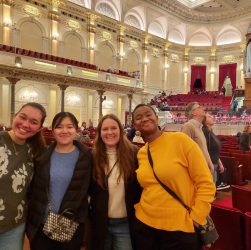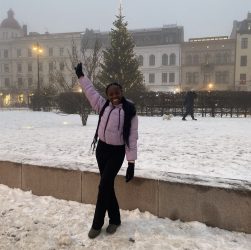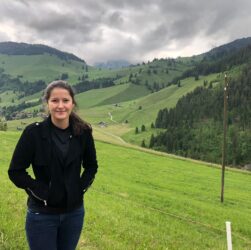Nthatisi Mota M. Economics Semester Exchange in the First Semester, 2024 at the University of Zurich Pre-departure: Embarking on …


Nthatisi Mota M. Economics Semester Exchange in the First Semester, 2024 at the University of Zurich Pre-departure: Embarking on …

Chawanangwa Mhango M. Phil in Sustainable Development Semester Exchange in the First Semester, 2024 at Lund University Pre-departure: Expressing …

Jessica Van der Berg MCom in Economics Semester Exchange in the First Semester, 2022 at Lausanne University Pre-departure: The pre-departure …